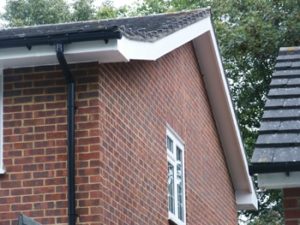What's The Current Job Market For Fascia Board Repair Professionals Li…
본문
Fascia Board Repair: A Comprehensive Guide
Fascia boards play a vital function in the structural integrity of a home. They are the long, straight boards that run along the lower edge of the roofing; they serve both functional and aesthetic purposes. Gradually, fascia boards can struggle with damage due to the components, bugs, or bad drainage systems. This short article aims to provide an extensive understanding of fascia board repair, detailing important details on determining damage, repair techniques, and maintenance ideas for homeowners.
Understanding Fascia Boards
Fascia boards are typically made from wood, vinyl, or aluminum. Their primary function is to support the bottom row of roofing system shingles and hide the rafters, thus supplying a clean and ended up aim to the roofline. Additionally, fascia boards likewise play a vital function in safeguarding your home from water damage by helping to direct rainwater far from the house through gutters.

Why Repair Fascia Boards?
Harmed fascia boards can cause a plethora of issues, including:
- Water damage: Allowing moisture to penetrate the roofing structure, resulting in mold and structural decay.
- Pest intrusions: Damage can offer entry points for insects like squirrels or pests.
- Visual problems: Cracked, distorted, or peeling fascia can diminish a home's curb appeal.
Determining Damage
Before proceeding with repairs, it is vital to identify the condition of your fascia boards. Some common indications of damage consist of:
- Rotting wood: Often arising from prolonged direct exposure to moisture.
- Peeling paint: Indicates moisture invasion or inadequate sealing.
- Fractures or splits: Can occur due to thermal expansion or extreme weather conditions.
- Sagging or dislodged boards: May be a sign of structural concerns or pests.
Table 1: Common Fascia Board Damage Types
| Damage Type | Description | Cause |
|---|---|---|
| Decomposing | Soft, spongy texture | Extended wetness exposure |
| Peeling Paint | Flaking or blistering paint | Moisture infiltration |
| Fractures | Noticeable fissures | Thermal expansion |
| Sagging | Board is not lined up effectively | Structural damage |
| Pests | Holes or tunnels in the board | Entry by rodents/insects |
Fascia Board Repair Techniques
Repairing fascia boards involves a number of methods based upon the type and extent of damage. Below are effective methods for fascia board repair.
1. Minor Damage: DIY Repair
For small damages, house owners can often manage repairs with standard tools.
Materials Needed:
- Wood filler or epoxy
- Paint or sealant
- Sandpaper
- Putty knife
- Guide (if repainting)
Steps:
- Assess Damage: Identify the level of damage and determine if the entire board needs replacement or if repairs are enough.
- Clean Area: Remove any particles or loose paint.
- Fill Gaps: Apply wood filler or epoxy to fractures or holes utilizing a putty knife.
- Sand Smooth: Once dry, sand the fixed location to create a smooth surface.
- Paint/Seal: Apply guide and paint to match the fascia.
2. Considerable Damage: Board Replacement
If a fascia board is seriously harmed, a complete replacement may be necessary.
Products Needed:
- New fascia board (wood, vinyl, or aluminum)
- Nails or screws
- Hammer or drill
- Safety safety glasses and gloves
- Primer and paint (if wooden)
Steps:
- Remove Damaged Board: Carefully secure the damaged fascia using a crowbar or saw, ensuring not to disrupt surrounding materials.
- Measure and Cut: Measure the brand-new board to the very same length as the old one and cut accordingly.
- Connect New Board: Position the new fascia board and protect it with nails or screws, ensuring it is flush against the roofline.
- End up: Paint or seal the brand-new board to secure versus moisture.
3. Professional Help
For extensive damage or homeowner uncertainty, employing a professional contractor may be the very best choice. A competent contractor can evaluate the scenario accurately and ensure that any repairs or replacements are up to industry standards.
Maintenance Tips for Fascia Boards
To prolong the life of fascia boards and avoid future damage, think about the following maintenance ideas:
- Regular Inspection: Check fascia boards at least as soon as a year for indications of damage.
- Tidy Gutters: Ensure seamless gutters are regularly cleaned to avoid water from pooling or overruning onto fascia boards.
- Seal and Paint: Apply sealant or paint every few years to protect wooden fascia boards from moisture.
- Trim Overhanging Branches: Prevent physical damages from falling branches by keeping surrounding trees trimmed.
FAQ Section
Q1: How frequently must I examine my fascia boards?A1: It is suggested to
check your fascia boards a minimum of when a year, especially after heavy storms or seasonal changes. Q2: Can I paint over peeling fascia?A2: Peeling
paint ought to be removed, the location must be sanded, and any underlying damage should be resolved before repainting. Q3: Is it essential to change the entire fascia board if it's damaged?A3: Not always; small damage can typically be fixed with filler, however comprehensive damage might necessitate replacement. Q4:
What products are the very best choices for fascia boards?A4: Wood is standard and visually pleasing; however, vinyl and aluminum are more long lastingand resistant to rot and insects. Fascia board repair is an important element of home maintenance that substantially impacts the total health of the roof and structure. By identifying damage early, utilizing reliable repair methods, and sticking to maintenance ideas, property owners can secure their home from expensive repairs in the future. Whether selecting DIY methods or seeking professional aid, comprehending the significance of fascia boards and their maintenance is essential for any house owner.

댓글목록0
댓글 포인트 안내